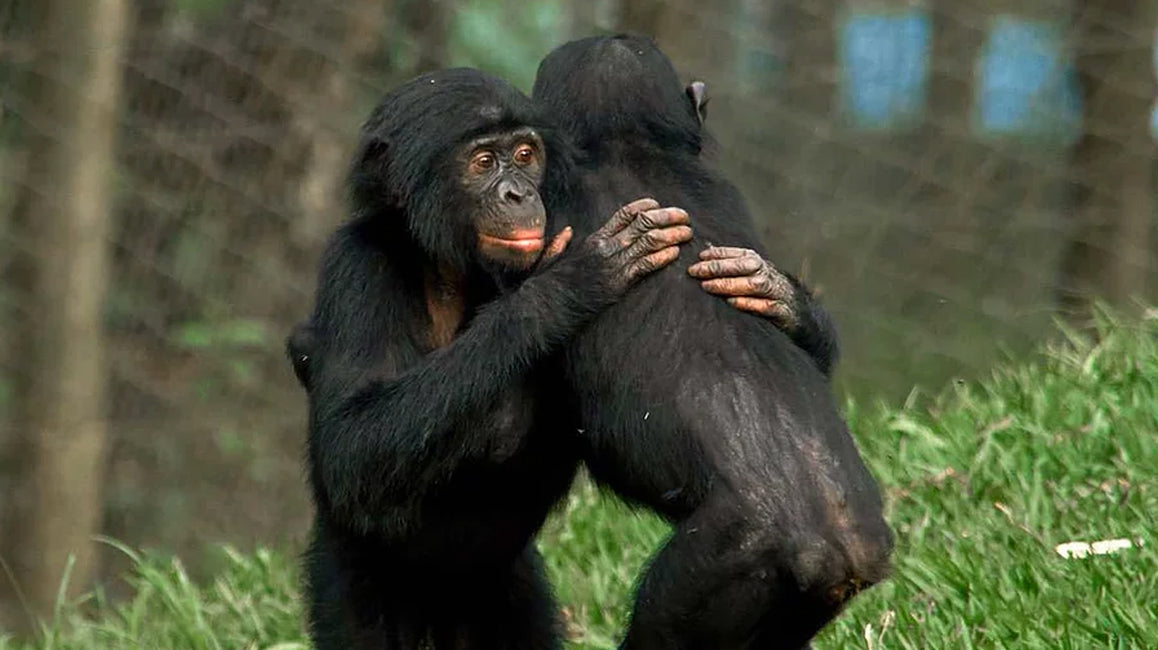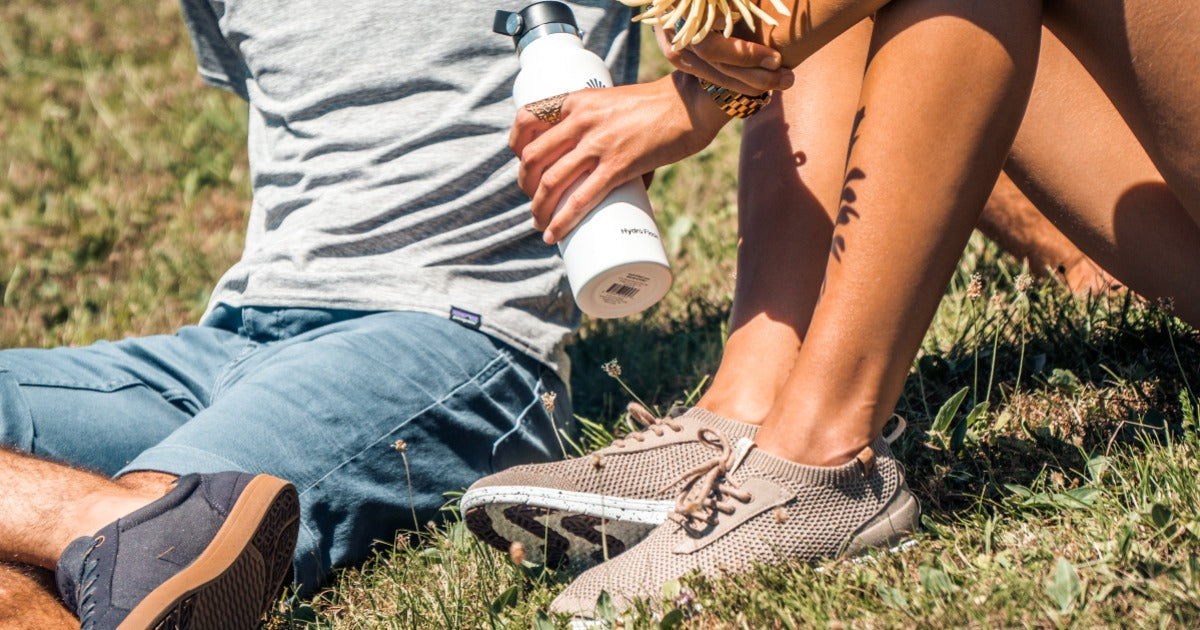We now donate to 5 non-profits, including Friends of Bonobos.
Watch the following short 7-minute documentary to learn more about the sanctuary, the story of Lola ya Bonobo in Bonobo Land, and founder Claudine André.
Touched by the commitment and support that this non-profit brings to the bonobos living in the Congo, we wanted to provide our support by making a donation throughout the year with every pair of shoes purchased. The money collected goes directly to the variety of local projects implemented by Friends of Bonobos to save and protect this endangered species.
"We are the ones who destroy, but we are also the ones who have the intelligence to save."

1. The Lola ya Bonobo sanctuary
Claudine André created Friends of Bonobos was created in 1994. Her actions gradually led her to create Lola ya Bonobo, aka "Bonobo Paradise" in 2002. Today, Lola ya Bonobo is the only sanctuary in the world dedicated to orphaned bonobos. The sanctuary is located just south of the suburb of Kimwenza near the Petites Chutes de la Lukaya (a series of waterfalls along the Lukaya River), Kinshasa, in the Democratic Republic of the Congo.

Bonobos are illegally hunted for their meat. When the parents are killed, the babies are orphaned and sold as pets to people all over the world. At Lola ya Bonobo, a team of caregivers rescues and cares for bonobos that have fallen prey to human poaching.
Needing love and attention to grow, a surrogate human mother is given to each bonobo infant. A veterinarian and an extraordinary staff are also present to support them.
Once they reach adulthood, adult bonobos are released back into the wild and provided full protection by the nature reserve. Local people work to protect their home, the rainforest.
The primary driver for the bonobo meat trade is the extreme poverty in the area. Friends of Bonobos works with the local communities living in the vicinity to build a better future. The non-profit relies heavily on educating the area’s youth to preserve local wildlife.

2. The goal? Liberate, care and protect
The Ekolo ya Bonobo community reserve is the only natural site that protects and supports bonobos of the Congo.
After growing up in Lola ya Bonobo, adult bonobos are released into the wild and provided with long-term protection. Friends of Bonobos preserves their natural habitat, the rainforest, and works tirelessly with local communities to reduce poverty, the primary driver for poaching. Friends of Bonobos is committed to providing care, education, and raising awareness for the need to preserve African biodiversity.

3. Ekolo ya Bonobo - Land of the Bonobos
Ekolo ya Bonobo means "Land of the Bonobos" in Lingala, the predominant language of the Democratic Republic of the Congo.
Today, about 28 bonobos live in the Ekolo ya Bonobo community reserve. This 120,000-acre (35-hectare) reserve in Equateur Province, DRC, is a protected rainforest, a safe place where bonobos and many other animals and plants thrive.

The Ekolo ya Bonobo Reserve borders a river that connects to the water transportation system in the Congo. Bonobos emerge from the forest and can be seen on elevated viewing platforms on the shore.
Each year, thousands of people come by canoe and motorboat to see them. For most, this is the first time they have seen bonobos in their natural habitat. The people of Basankusu have become "bonobo guardians" who protect the bonobos in their new wild home.

"By participating in bonobo conservation, you are not only protecting bonobos, but also contributing to the environmental, social, and economic development of the only country in the world where bonobos are found, the Democratic Republic of the Congo.”
Fanny Minesi, Executive Director, Friends of Bonobos.
Friends of Bonobos is committed to hiring local community members for projects, and works with locals to make decisions that affect the surrounding population.
The CANNON collection supports Friends of Bonobos. 👇




